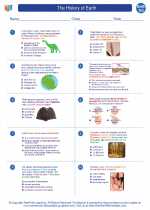Glycogen
Glycogen is a complex carbohydrate that serves as the primary storage form of glucose in animals and humans. It is primarily found in the liver and muscles, where it can be quickly broken down to provide a source of energy when blood glucose levels are low.
Structure of Glycogen
Glycogen is a highly branched polymer of glucose molecules. It consists of a core protein called glycogenin, which serves as the starting point for glycogen synthesis. Glucose molecules are then added to the glycogenin core in a branching pattern, resulting in a highly branched structure that allows for quick and efficient storage and release of glucose when needed.
Function of Glycogen
The primary function of glycogen is to serve as a readily available source of glucose for the body. When blood glucose levels drop, such as during periods of fasting or intense physical activity, the liver can break down glycogen and release glucose into the bloodstream to maintain optimal blood glucose levels. In muscle cells, glycogen provides a local source of energy for muscular activity.
Regulation of Glycogen Metabolism
Glycogen metabolism is tightly regulated by several hormones, including insulin and glucagon. Insulin promotes the synthesis of glycogen, while glucagon stimulates the breakdown of glycogen to release glucose into the bloodstream. Additionally, the enzyme glycogen phosphorylase plays a key role in the breakdown of glycogen, while glycogen synthase is responsible for glycogen synthesis.
Study Guide Questions
- What is the primary storage form of glucose in animals and humans?
- Where is glycogen primarily found in the body?
- Describe the structure of glycogen.
- What is the function of glycogen?
- How is glycogen metabolism regulated?
◂Earth Science Worksheets and Study Guides High School. The History of Earth

 Worksheet/Answer key
Worksheet/Answer key
 Worksheet/Answer key
Worksheet/Answer key
